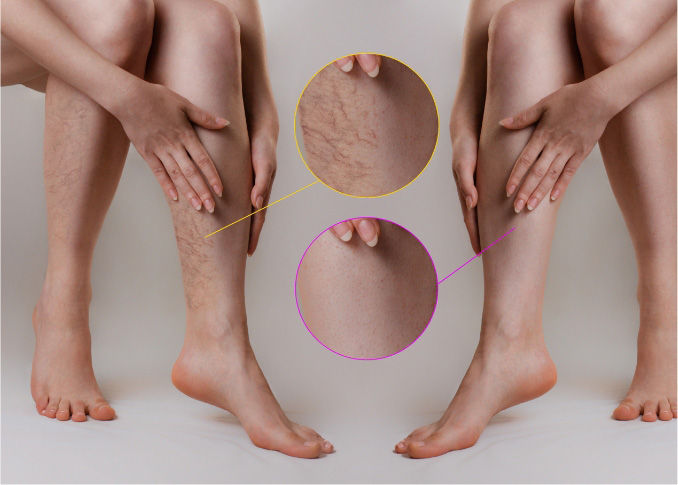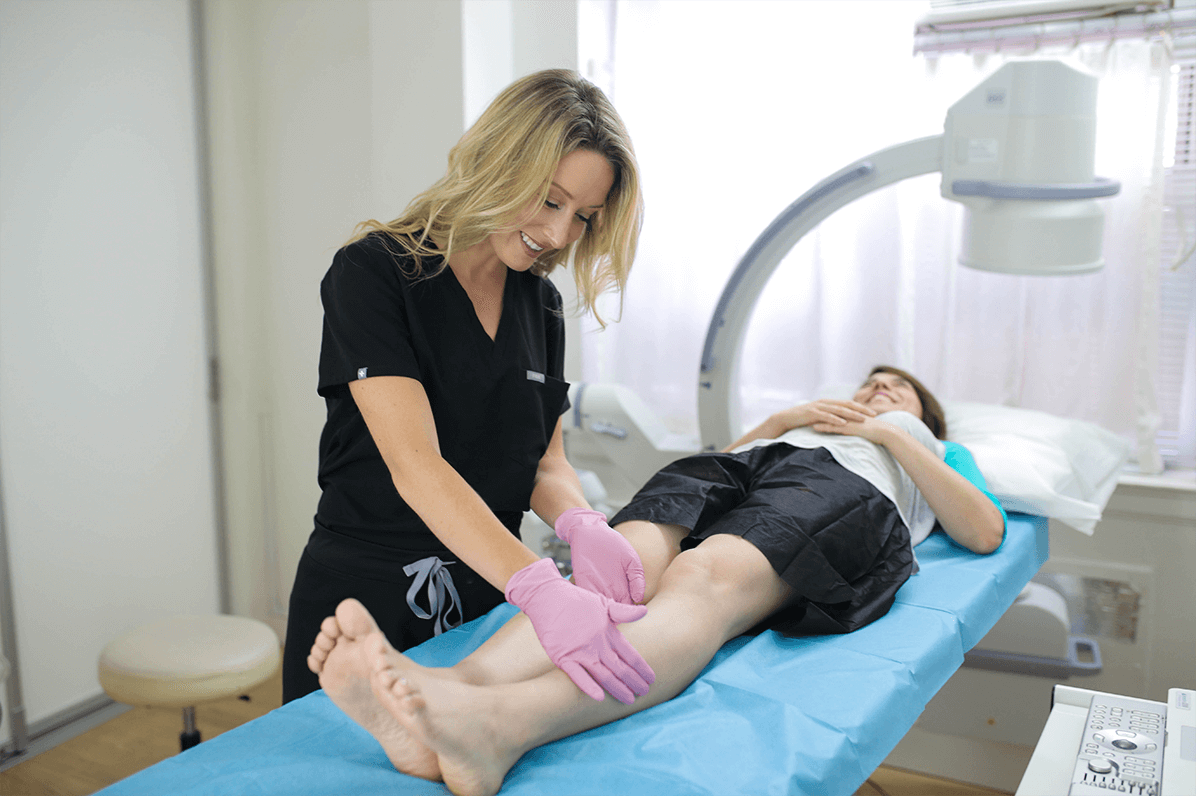How Can a Vascular Doctor Diagnose and Treat Vascular Conditions?
Vascular health plays a critical role in our overall well-being, yet many individuals may not be aware of the importance of maintaining healthy blood vessels until issues arise. Vascular conditions can range from common concerns like varicose veins to more severe problems such as peripheral artery disease. When faced with these issues, a vascular doctor, sometimes referred to as a varicose vein specialist, is the expert to turn to for diagnosis and treatment. In this article, we'll explore how vascular doctors diagnose and treat vascular conditions, the signs indicating it's time to consult one, and what these specialists are called.
What Kind Of Doctor Treats Veins?
Before we delve into the diagnostic and treatment processes, it's important to understand who a vascular doctor is and what they may be called. A vascular doctor, formally known as a vascular surgeon or vascular specialist, is a medical professional who specializes in the diagnosis and treatment of vascular conditions. These conditions encompass a wide range of issues related to the blood vessels, arteries, veins, and lymphatic system. For varicose veins, the specialist is often referred to as a varicose vein specialist.

When to See a Vascular Doctor: Recognizing the Signs
Knowing when to consult a vascular doctor is the first step in addressing vascular health concerns effectively. Here are some signs and symptoms that should prompt you to seek a consultation:
- Varicose Veins: The appearance of bulging, twisted veins, especially if accompanied by pain, discomfort, or changes in skin texture, should lead you to consider a visit to a vascular doctor.
- Leg Pain: Persistent leg pain, especially when walking, can be a sign of peripheral artery disease (PAD), a condition that affects blood flow to the extremities.
- Leg Swelling: Unexplained swelling in the legs or ankles may indicate underlying vascular issues.
- Wounds that Won't Heal: Non-healing wounds on the legs or feet, which may be associated with reduced blood flow, require evaluation by a vascular specialist.
- Cold or Discolored Extremities: If you experience coldness or a bluish or pale discoloration in your fingers or toes, it could be a sign of compromised blood circulation.
- Aneurysms: Individuals at risk or with a family history of aneurysms should consult a vascular doctor for preventive measures and monitoring.
- High Blood Pressure: Persistent high blood pressure can strain blood vessels and potentially lead to vascular issues, making it important to seek guidance from a specialist.
- Diabetes: Individuals with diabetes are at increased risk for vascular complications, so regular check-ups with a vascular doctor are advisable.
The Diagnostic Process
When you visit a vascular doctor with concerns or symptoms related to vascular conditions, they will employ a systematic diagnostic process to determine the nature and extent of the issue:
- Medical History: The first step involves a detailed discussion of your medical history and a review of your symptoms. This provides the specialist with essential context.
- Physical Examination: A thorough physical examination is conducted to assess the affected area and identify any visible signs of vascular problems, such as varicose veins.
- Non-Invasive Imaging: Vascular doctors often use non-invasive imaging techniques like ultrasound, Doppler ultrasound, or magnetic resonance angiography (MRA) to visualize blood flow and detect abnormalities within blood vessels.
- Angiography: In some cases, an angiogram may be necessary. This invasive procedure involves the injection of contrast dye into the blood vessels to obtain detailed X-ray images. It helps the doctor pinpoint the exact location and severity of the issue.
- Blood Tests: Blood tests may be performed to evaluate specific markers related to vascular health, such as cholesterol levels and blood glucose.
Treatment Options for Vascular Conditions
Once a diagnosis is established, vascular doctors employ a variety of treatment options tailored to the specific condition and its severity. Common treatments include:
- Lifestyle Modifications: Lifestyle changes, such as exercise, smoking cessation, and dietary adjustments, can be effective in managing vascular conditions and improving overall health.
- Medications: Vascular doctors may prescribe medications to manage conditions like high blood pressure or cholesterol and prevent blood clots.
- Minimally Invasive Procedures: Minimally invasive procedures like angioplasty, stenting, or endovascular surgery are used to treat conditions such as arterial blockages and aneurysms. These procedures are less invasive and typically require shorter recovery periods.
- Surgery: In some cases, open surgery may be necessary to repair or replace damaged blood vessels. Vascular surgeons are highly skilled in performing these procedures.
- Compression Therapy: For venous conditions like varicose veins, compression stockings can be recommended to improve blood flow and alleviate symptoms.
- Vascular Rehabilitation: Vascular rehabilitation programs provide comprehensive care, including exercise, education, and support, to help individuals manage and recover from vascular conditions.

The Multidisciplinary Approach
Vascular health often intersects with other medical specialties, such as cardiology, radiology, and neurology. Vascular doctors frequently work collaboratively with other healthcare professionals to ensure patients receive the most comprehensive and effective care. This multidisciplinary approach enhances the quality of treatment and results in better outcomes for patients.
In Conclusion
Vascular health is an integral component of overall well-being, and recognizing the signs of vascular conditions is the first step in maintaining it. When you experience symptoms or concerns related to vascular health, consulting a vascular doctor, or in the case of varicose veins, a varicose vein specialist, is crucial. These specialists possess the expertise to diagnose and treat a wide range of vascular conditions, helping patients regain their health and quality of life. Early intervention and timely consultation with a vascular doctor can make all the difference in effectively managing vascular health.
Comments
Post a Comment